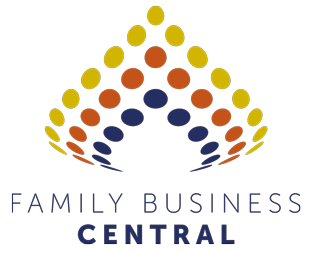The Family Business Legacy Journey
We have worked with family businesses for many years. And over these years we have seen clear patterns emerge within businesses as they grow, evolve and develop from their initial starting point.
We call this progression the Family Business Legacy Journey and there are key points within this journey that we think are worth acknowledging and supporting to help you secure your business for future generations.

Starting a business
Most family businesses start with a simple idea.
It’s rare for a group of family members to sit down and say, ‘Let’s start a business together.’ More often, it is one person who has the enthusiasm and is motivated to try something new.
This could be your business, a classic example…
You have some savings, spot a gap in the market and decide to purchase a truck and start a delivery service.
In the initial stages, you probably have limited financial capital and are running on a tight budget. You work hard to secure customers and dedicate many hours to the business for, initially, not much return. Like many founders of family businesses, you regularly sacrifice your own wages to help the company develop.
After a while, there is positive progress. You have regular customers and the amount of work is increasing. Turning to family for help is the natural next step.

Employ a family member
So you may ask your sister to help you out. Family members are usually fine to do this… they know cash is tight and wages low, especially while the business is still in its growth phase… family members are the only ones willing to work for not much money.
However, if you can tap into the skills already available within your family, it is a great way to extend your business’s capabilities.
With your delivery service, your sister who is driving the truck is the perfect employee.
She can drive extra shifts and double the company’s output of work. In time, this improves the financial position and eventually you can pay her properly. Once the cashflow is turning, the business can expand and consider the next phase in its evolution.

Growth phase
As your family business grows, more and more decisions are made. These can include increasing or enhancing services… perhaps your sister-in-law is an accountant and you can engage her as a book-keeper to manage the accounts… or you might even be in a position to secure a property lease for an office or warehouse.
You have laid the firm foundations and the business is self-sustaining. What was originally a one-man operation has become something much more.

Next generation
The term ‘family business’ feels even more legitimate when members of the next generation become involved.
Your kids, your nieces and nephews, might be coming in during their school holidays or on the weekends.
Their tasks might be simple, like sweeping the warehouse floor or some basic office administration.
But their involvement is an indication that the business could be part of their future.
This is when you need to start thinking about succession. You may feel it is years away but it is critical that you start considering your options… start having the conversations and start being clear about expectations. You’re not setting things in stone but you are acknowledging it and asking the family to think about it.
If your children or your nieces and nephews are interested in the work and the structure of the organisation, it could also be time to start thinking about future possibilities. What type of role could they perform in the business? Would the business support them through their education? Does the business structure provide development opportunities for them?

Doing this thinking now and starting to have the conversations makes the whole process so much easier and saves huge amounts of grief at a later date.
The family businesses that embrace this stage have a far easier time of it, are far more successful in their succession process and can focus on growing the business knowing the family is aligned.
As new family members come on board, it’s extremely important to safeguard your healthy relationships.
It is critical that everyone recognises the need for separation between business related and family related matters.
No one starts a family business to damage family relationships, so follow some simple guidelines and both your family and your business with thrive.
For example: make sure you don’t talk about the business around the dining table. Or when you are in a sales meeting, don’t ask your niece about her university exams. Difficulties arise when lines become blurred. Conflict can occur when the relationship between father and son versus employer and employee is strained. Know which ‘hat’ you’re wearing — ‘Dad hat’ or ‘Boss hat’?
By maintaining clear, honest communication and setting boundaries around work time and family time, your business can keep everyone happy and enjoy every success.

Children in leadership roles
As the years go by and the business achieves success after success, you might start taking a step back.
Members of the next generation are likely to now be in leadership positions and have their own vision for the future of the business.
They have fresh ideas. They understand innovative technologies and want to embrace new opportunities. You might find this challenging as a founder, because it can mark the point where you are no longer the driving force of the business.
It’s time for you to relinquish control and find where you now fit within the organisation… or perhaps outside it.
If you have made your wishes clear, got the family aligned and had good robust discussions around succession, wills and other legal contracts start to fall into place and need to be completed as soon as possible to minimise any conflict or confusion.
Family Business Central advisers
We recommend seeking the services of a family business adviser early in the life of the business. When members of the next generation first start to become involved, we can help you create the framework that sets your family business’s structure for years to come.
We can help you with developing a family charter, creating a family council, succession planning and much more.
Contact Family Business Central to talk to an adviser today.


